Four years ago, cousins Rick and Willem de Boer, representing the third generation, took over the Dutch carrot processing company, W. de Boer. They were immediately faced with all facets of the carrot market. "Soon after we became owners, the pandemic hit, last year's carrot market was terrible, and now, we have to deal with sky-high prices," begins Willem.
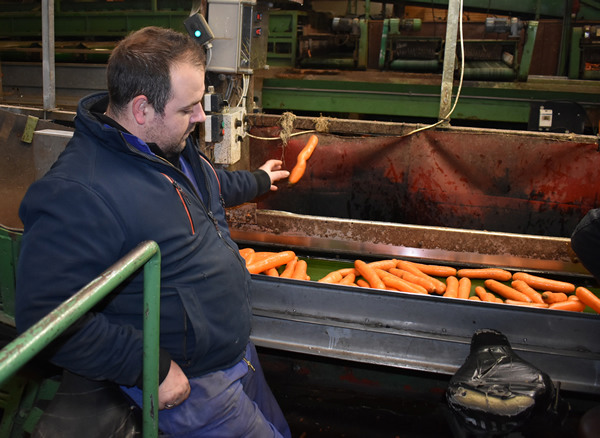
Willem de Boer
The cold weather in Southern Europe has greatly affected Europe's carrot supply. "There's sudden demand from all sides. Germany, Spain, Portugal, the Czech Republic, Hungary, and Poland are all on the market. Dutch companies are known for filling holes, which we're enthusiastically doing now. Some customers we haven't seen for years are loading with us again. But buying in's also expensive. Growers are getting €0.65."
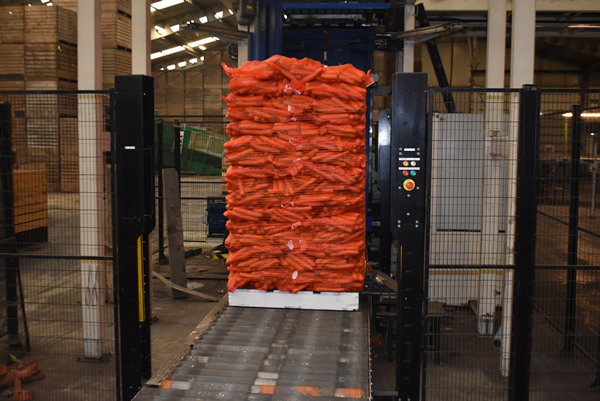
The tasks within the company are neatly divided. Rick takes care of purchasing, Willem of sales, and for the past few years, his sister Noortje - previously part of the Defense department's liaison troop division - has done the administration. "Noortje is a true jack-of-all-trades," Willem says proudly.
"That's perfect for us because she unburdens us of many things. For example, she did a lot of research about the 1,400 solar panels we installed on our roof. That makes us self-sufficient in energy; hugely advantageous with today's energy prices."
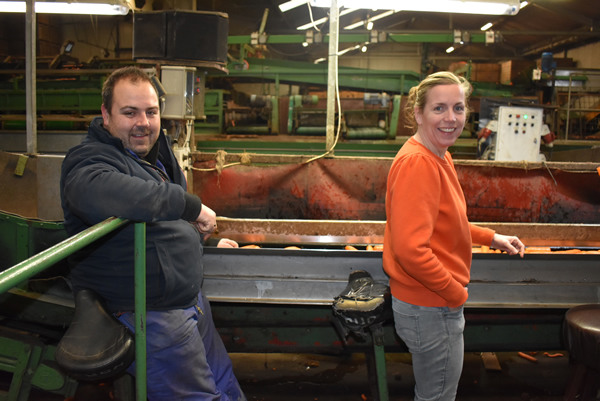
Willem and Noortje
Winter carrots are, by far, W. de Boer & Zn's specialty. Once they arrive, these carrots are washed, polished if necessary, and sorted into three different categories. They are then fully automatically optically laser-graded for infestations and flaws into three categories and packaged for local and overseas clients. "We've been doing optical sorting for 16 years. My father was the first in the Netherlands to buy an Odenberg machine in Denmark, which proved hugely successful," explains Willem.
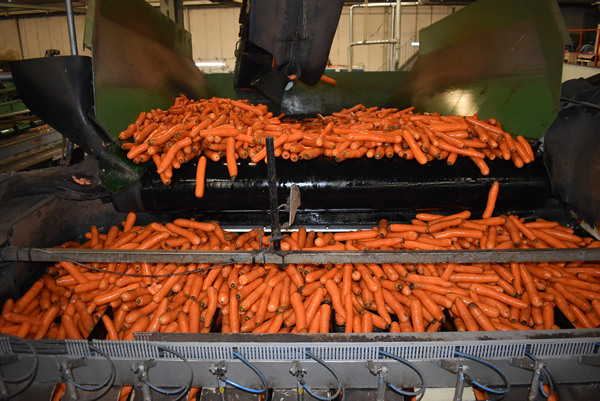
"We can package about 30 tons per hour. We used to grow carrots, too but stopped. We buy them locally and further afield." De Boer says this year's quality is excellent. "That was different last year when we diverted as many as 10,000 crates to fodder," he admits.
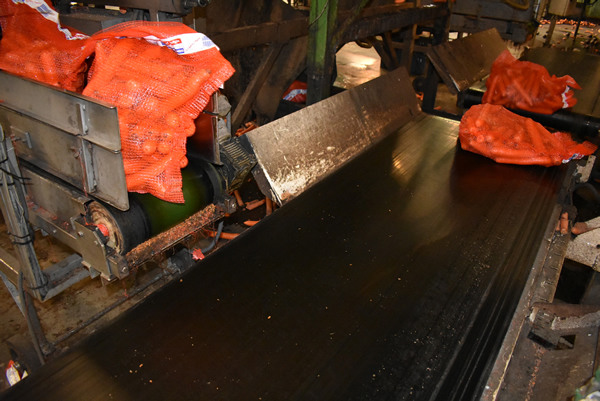
In recent years, the company began focusing more on specialties like yellow carrots and carrot parsley, but it has not been easy. "Those markets are pretty much full. If there's a hectare too much, you can't get rid of it." They had cut back on red beet processing, but the company plans to pick that up more soon. "Regional buyers like that they have a local place for those beets. These are still day traded by pallets. That's often nice trade, but it has to be top quality," continues Willem.
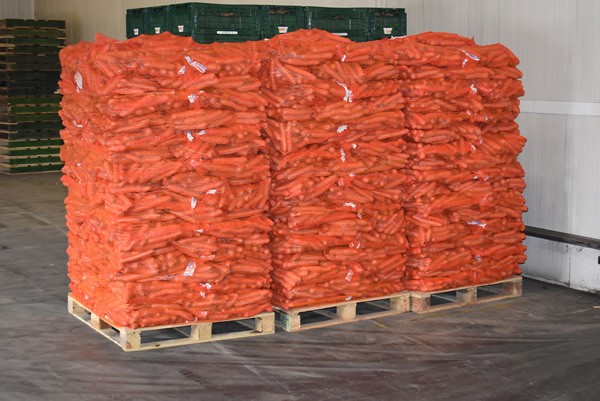
In the summer, the De Boer cousins venture into contract work with peony harvesting. "A few small tweaks to the harvesters, and you can also harvest, say, peony cuttings. We then rinse these using our self-developed rinsing system. Our advantage is we're fast and flexible. We can adjust our processing line from carrots to red beets within minutes. That flexibility is our strength," Willem concludes.
For more information:
W. de Boer & Zn
26 Oudijk
1617 KR, Westwoud, NL
Email: info@deboerwestwoud.nl
Website: www.deboerwestwoud.nl
